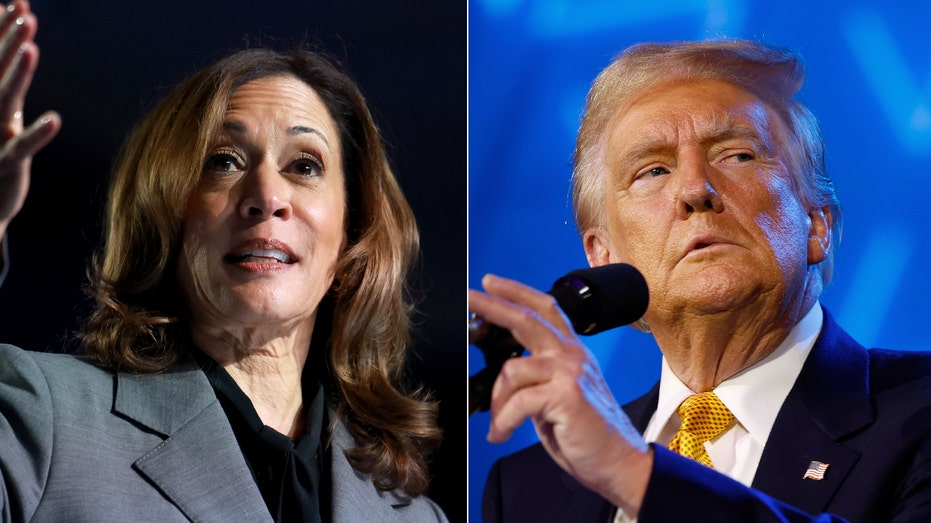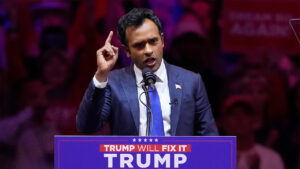
Recent research projects a national population of 25 to 30 million adults who qualify as theologically-defined evangelicals – and estimates that one third of them do not vote.
Who are American evangelicals, and what do they want? This is one of the questions perplexing politicians, pollsters and strategists in the run-up to Election Day.
Recent research from Dr. George Barna conservatively projects a national population of 25 to 30 million adults who qualify as theologically-defined evangelicals – and estimates that one third of them do not vote.
Election Forum estimates that nearly 7 million evangelicals in swing states alone did not vote in the 2020 election. Whether out of disillusionment, disconnection or distrust, millions of would-be Christian voters sat out an election that was decided by tens of thousands of votes.
Both major political parties have tried to appeal to faith voters in a way that demonstrates a partial (at best) understanding of who these Americans are and what they believe. Tactics like concocting candidate faith testimonies, parading denominational “roots,” or drumming up doctrinal statements just don’t work to activate truth-loving voters.
WHY EVANGELICALS ARE WEDDED TO TRUMP AS HE MAKES A MORE BIBLICAL APPEAL
Recent polling indicates there is no presidential candidate in 2024 with the ability to decisively command the “Christian” vote. There are several possible reasons why evangelical Christians have not been energized to turn out as a unified voting bloc.
One such reason is backlash to emotional manipulation in politics. Politicians and their proxies in religious circles have distorted public policy issues to manipulate and confuse well-meaning Christian voters.
Policies like unrestricted abortion and open borders have been painted with a veneer of Christian-like empathy and understanding. Well-funded special interest groups have employed sophisticated measures to influence evangelical voting behavior from within the church.
Christians have lost trust in politicians and surrogates who attempt to hijack their sincerity to provoke sympathy for lawlessness or pressure them into tolerating beliefs that harm those who hold them. But attempts to shame and suppress conservative evangelicals using words like “political idolatry” and “divisiveness” are no longer working. Christians who are waking up to the fact that niceties do not convert fundamentally bad ideas into good or biblical policies should express this at the ballot box.
Second, most Christian voters have not had the opportunity to hear their own pastors speak freely about the issues at stake. Pastors have long been hindered from doing so by the Johnson Amendment, the provision in the Internal Revenue Code that restricts 501 (c)(3) nonprofits, including churches, from making statements of support or opposition to political candidates or even comparing the positions of candidates to Scripture.
Absent such restrictions, this would be a critical time for faithful Christian clergy to speak with one voice to energize and activate their congregations to vote in alignment with their genuine interests and concerns. National Religious Broadcasters recently filed a challenge to the Johnson Amendment to preserve robust First Amendment freedoms in future elections, ensuring that pastors can speak freely on all matters that their faith informs – including issues on the ballot.
But at this stage in the 2024 presidential election, there are very few truly undecided voters. Most evangelical Christians have already concluded which candidates best align with their Christian beliefs and their hopes for America’s future. While there may only be a small number of voters still contemplating the choice between former President Trump, Vice President Kamala Harris, or other federal, state or local candidates further down the ballot, many more are wavering between action or inaction. The decision at hand is whether to put their vote into the ballot box.
FAITH VOTERS WILL ‘DECIDE THIS ELECTION,’ ACCORDING TO PROMINENT GOP MEMBERS
The justification for participating in the 2024 presidential election does not rest on the religious devotion or clean moral track record of any candidate for office. I believe that every Christian has a moral and ethical duty to participate in this election for three main reasons.
First, the magnitude of what this president will inherit cannot be overstated. The job of the 47th U.S. president will not be to charm and delight the U.S. public. On the contrary, the individual who takes the oath of office on Jan. 20, 2025, will be responsible for the following:
An untenable situation at the U.S. southern border, which constitutes a massive humanitarian and public safety crisis billable to the American taxpayer; a dangerously destabilized Middle East, with Iranian missiles sailing into Israel in recent days; the urgency of negotiating peace between Ukraine and Russia; the troubled state of the U.S. economy and much more.
To deliver this job to someone without the strength, fortitude and moral clarity to choose the correct course of action – and do what they say they will do – would be a great disservice to America and to the world.
DEMOCRATS DRIVING RELIGIOUS VOTE AWAY FROM PARTY AS TRUMP COURTS CATHOLICS: ‘ANTI-CHRISTIAN’ PARTY
Second, the violence and bloodshed surrounding this presidential election is a direct reflection of America’s spiritual condition. Trump is only the second U.S. president (after President Gerald Ford) to survive multiple assassination attempts, with the attack on Trump’s rally in July resulting in the death and injury of innocent bystanders.
Far from being defined by “joy,” the run-up to this election has been murderous and bloodthirsty. The 2024 presidential election has been a national encounter with spiritual darkness. The forces of evil have shown up. Will Christians respond? We must not only pray steadfastly for America’s spiritual welfare, but we must show up to vote with determination and resolve come Nov. 5.
Third, Harris and Trump offer two radically different visions for America, implicating serious issues of Christian concern beyond the obvious national priorities.
Trump does not assert that his policies are informed by Christianity or the Bible, but by principles of common sense and consensus-building. Indeed, he has acted with an eye toward pragmatism and political viability on some issues where Christians have asked for stronger commitments. Trump has nonetheless demonstrated openness to persuasion on moral issues and has pledged to safeguard the free exercise of religion and conscience protections that are cherished by religious believers.
NEW ‘GOD’S NOT DEAD’ FILM INSPIRES CHRISTIANS TO MAKE THEIR VOICES HEARD AT BALLOT BOX
Harris has cited faith as a direct justification for her positions and ideas and has asked that faith leaders use their credibility to support these aims. In 2022, Harris told the National Baptist Convention, “As extremists work to take away the freedom of women to make decisions about their own bodies, faith leaders are taking a stand, knowing one does not have to abandon their faith or deeply held religious beliefs to agree that a woman should have the ability to make decisions about her own body and not have her government tell her what to do.”
One cannot help but conclude that Harris would not favor strong conscience protections for these “extremists,” nor spare the taxpayer dollars of her coreligionists from being spent on unrestricted abortion.
Single-issue voters should be aware that there are multiple issues at stake in this election which Scripture addresses clearly. Bound up in these diverging visions for America are numerous proposals that Christian voters must diligently examine from a biblical viewpoint, such as protecting the innocence of children, promoting a culture of life and family formation, empowering parents, ending the unjust weaponization of government and defending against persecution of Christians.
If you are not certain of the importance of your voice on Nov. 5, I urge you to further research the policies connected to the names on the ballot. Learn what your candidates are promising to do, and consider whether they can keep their promises. Voters who feel torn by the presidency need to remember that there are issues and candidates up and down the ballot whose decisions will directly impact the state and community where you live.
Christian, your vote will influence the outcome of the 2024 election whether you cast it or not. Our country needs you at the ballot box. As Christians, we willingly render unto Caesar what is Caesar’s, and unto God what is God’s.
In this era of our nation’s history, our elections involve questions of moral good and evil, the lives and health of the next generation, and the future of global peace and security. Christian presence and participation is critical to preserving our nation for the glory of God.
CLICK HERE FOR MORE FOX NEWS OPINION
Your duty as a Christian in election season is not to be entertained, amused or cheered up—but to be a sober-minded and watchful guardian of what God has entrusted us. Make it your mission to convert inertia and inattention among your friends, relatives, and fellow Christians into participation and purpose.
Don’t sit this one out. Vote, and encourage others to vote, by Nov. 5.



